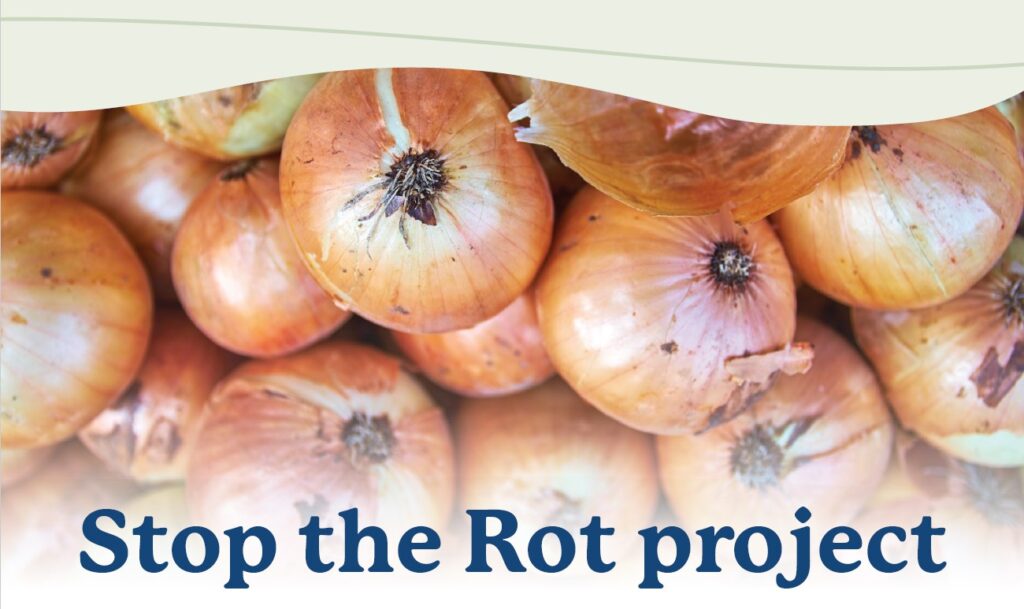Nov 7, 2023Stop the Rot project
Growers to learn about combatting onion disease at Great Lakes EXPO 2023
Growers know the importance and delicacy of controlling onion rot and disease. Proper management such as effective irrigation, avoiding injury to the crop and more can lead to a healthy onion crop. During the 2023 Great Lakes Fruit, Vegetable and Farm Market EXPO, attendees will have the opportunity to learn about the Stop the Rot project presented by Bhabesh Dutta and Lindsey du Toit.
Bhabesh Dutta, associate professor and Extension vegetable pathologist at the University of Georgia (UGA) has worked on bacterial onion diseases as a trained phytobacteriologist since 2012. Dutta will inform growers about the Stop the Rot project and key objectives for onion stakeholders.


Stop the Rot objectives
“The project has two broader objectives,” Dutta said. “In our first objective, we utilized pathogenomics tools to identify virulence factors and develop diagnostic tools for bacterial pathogens in onion. We also aimed to evaluate phenotypic resistance screening methods for bacterial pathogens. Our second objective focused on examining key production practices and environmental factors that impact bacterial diseases of onion. Economics and Extension activities were integrated into both objectives.”
According to Dutta, the long-term goal of the Stop the Rot project is to “support the overall profitability and sustainability of onion production in the United States by reducing pre- and post-harvest losses due to bacterial diseases.” Finding practical and economical management for onion growers will ultimately boost profits.
Lindsey du Toit, professor and Extension plant pathologist at Washington State University (WSU) and chair of the WSU department of plant pathology, suggests onion growers implement an integrated disease management program to combat onion disease.
“Using an integrated disease management program is key,” du Toit said. “This includes using an optimum fertility program, careful management of irrigation, avoiding physical injury to the crop, using copper-based bactericides, careful timing of undercutting and topping of onion crops to increase the speed of field curing and topping onion bulbs to leave a longer neck.”
Stop the Rot learning opportunities at Great Lakes EXPO with Dutta and du Toit:
- Bacterial rot in onions is caused by a diverse group of bacterial pathogens and some of the prominent genera that were actively associated belonged to the following genera: Burkholderia, Pantoea, Enterobacter, Rahnella and Pseudomonas.
- The distribution of bacterial rot-causing genera may differ according to the geographical region of onion production.
- Virulence factors in Pantoea species that aid in onion rot are diverse.
- The type of irrigation practices and timing of topping may impact bacterial rot and subsequent storage quality.
“Generally, the risk of onion bacterial rots increases the higher the amount of nitrogen used to grow onions, particularly if some of the nitrogen is applied after the onion crop has started bulb initiation,” du Toit said.
- The performance of copper-based bactericides is variable across different onion-growing states.
“Historically, onion growers have applied copper bactericides to try and control bacterial diseases,” du Toit said. “Field trials with different bactericides in multiple states across the USA showed that copper bactericides had some efficacy against bacterial diseases in regions such as Georgia, but had no efficacy or very limited efficacy in most other regions.”
To learn about this session and others, visit glexpo.com.














